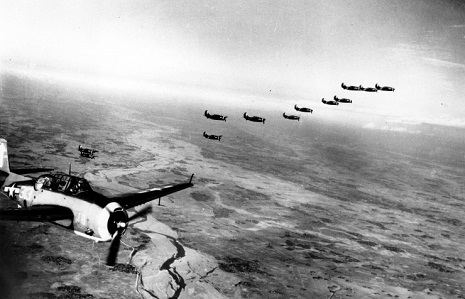Commemorative events will be held all across the country. By tradition, the central one will be held at Chidorigafuchi cemetery in Tokyo where the cremated remains of thousands of victims were buried after forensic experts had failed to identify them because of severe burns.
The US Air Force squadron that took part in the Operation Meetinghouse on March 10, 1945, had 334 bombers.
In the preceding phases of the war, the Americans seized a number of Pacific territories in the vicinity of the Japanese archipelago, including the Mariana Islands. Fuel economy allowed B-29 Superfortress planes based there to increase the payloads taken aboard for sorties to the maximum.
All in all, the American crews dropped almost 1,700 firebombs on the city, which caused sweeping fires and provoked a firestorm similar to the one that annihilated Dresden in Germany after the US-British bombing about a month before that.
As a result of the March 10 firebombing in Tokyo, the city lost some 330,000 buildings, or 40% of what it had at the moment. More than a million residents of the Japanese capital found themselves without shelter.
Operation Meetinghouse is comparable in terms of its atrocious scope and scale only to the nuclear bombings of Hiroshima and Nagasaki.
Political and historical assessments of the super-raid differed widely in subsequent years. The opinion that is most widespread in the US maintains that the bombing of Tokyo — as well as the nuclear strikes in August 1945 — helped bring forward the capitulation of Japan and saved big numbers of US servicemen’s lives that would have been lost if the US had to invade the Japanese islands.
Along with it, many observers have described the Operation Meetinghouse as an act of barbarism and a war crime. It is noteworthy enough that the US General Curtis LeMay, the main organizer of Tokyo’s firebombing admitted later that he would have had to stand trial as a war criminal had the US lost the war.
In spite of the unresolved controversies of the Operation Meetinghouse and its aftermaths, today’s Japanese society does not conduct any active debates on it. The vast majority of the Japanese view this anniversary as an opportunity to remember those who died and to pray for global peace.
More about:
















































